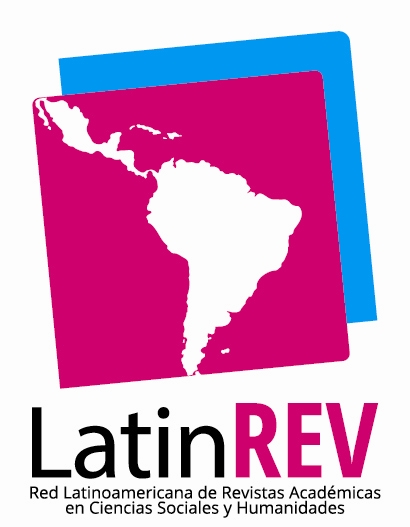Ethical code
Revista Multidisciplinaria de Investigación is guided by the academic purposes of the University of El Salvador, as established in Article 3 of its Organic Law, which include:
- Preserving, promoting, and disseminating science, art, and culture.
- Training professionals who are morally and intellectually prepared to carry out their roles in society, integrating teaching, research, and social projection functions.
- Conducting philosophical, scientific, artistic, and technological research of a universal nature, primarily focused on Salvadoran and Central American realities.
- Promoting, with a social-humanistic approach, the comprehensive formation of students.
- Contributing to the strengthening of national identity and the development of a distinct culture, in service of peace and freedom.
- Promoting sustainability and the protection of natural resources and the environment.
- Fostering among students the ideal of unity among Central American nations.
Mission: The University of El Salvador is a public and autonomous higher education institution, scientific, critical, participatory, democratic, and committed to comprehensive national development. It aims to form professionals of high human, scientific, and technological quality, with a focus on the environment and life in all their forms and manifestations, as well as on the production and contextual application of knowledge through the integrated practice of teaching, research, and social projection.
Vision: To be the public and autonomous university that leads higher education in the country, with national and international educational leadership. Its innovative training of entrepreneurial professionals of the highest quality, along with the production of scientific and technological knowledge, enables it to be a democratic and critical actor in socio-educational changes, leading to the construction of a developed, just, educated, sustainable, scientific, and secure society.
The Code of Ethics of the University of El Salvador, in Article 5, establishes the ethical values that should govern the conduct of those who are part of the university community. These values are:
- Authenticity
- Autonomy
- Cooperation
- Equity
- Ethics
- Excellence
- Honesty
- Innovation
- Meritocracy
- Relevance
- Responsibility
- Teamwork
On the other hand, Revista Multidisciplinaria de Investigación, with the aim of ensuring scientific rigor and promoting ethical conduct throughout all editorial process phases, adheres to the principles of the Committee on Publication Ethics (COPE), as outlined in its Core Practices, which can be consulted at the following link: https://publicationethics.org/core-practices
In this regard, the Editorial Board of Revista Multidisciplinaria de Investigación will ensure that all parties involved (editors, reviewers, and authors) comply with and respect all ethical principles to ensure the academic-scientific nature of the published articles. Therefore, the following rules are presented to the entire academic community:
For Authors:
- Articles must be original and unpublished.
- Copyright norms established in the Creative Commons Attribution-NonCommercial 4.0 International License (CC BY-NC 4.0) must be followed.
- Contributions and contributions of other authors must be acknowledged by citing them using the APA 7th Edition Style Manual; sources must be cited in a complete and correct manner. This helps prevent plagiarism and self-plagiarism.
- Authors, when submitting the article, certify that the manuscript is not under review by another entity or journal, with the aim of avoiding conflicts of interest and disclosure.
- In case the article contains errors in content or data inaccuracies, these must be promptly reported to the Editorial Board, which will provide information to correct and rectify the errors.
- If the manuscript has been prepared by multiple authors, by placing their names, they declare that all have made a significant contribution to the research, development, and writing of the article.
- Authors must refrain from submitting repetitive, redundant, or unnecessary article texts.
- Authors must ensure that the data and information presented are accurate and have not been falsified, altered, manipulated, or copied without proper acknowledgment.
For Reviewers:
- Reviewers, by accepting the review process, attest to their knowledge and expertise in the field of study addressed in the article.
- Confidentiality of information must be guaranteed at all times; reviewers cannot use the article's information for personal purposes or to favor third parties.
- Reviews must provide constructive and specific criticism, in other words, they must be impartial and objective.
- Reviewers must refrain from reviewing articles that pose a conflict of interest or are outside their expertise.
- Reviewers cannot, under any circumstances, know the identity of the author or other reviewers involved in the peer review process.
For Editors:
- Transparency in the processes of peer review, editing, and publication of each issue of Revista Multidisciplinaria de Investigación must be ensured.
- Published issues should be disseminated to the academic and scientific community, which can be done through repositories, social media, databases, among other means.
- Communication and resolution of doubts for authors, reviewers, or anyone interested in writing for Revista Multidisciplinaria de Investigación should be facilitated.
- Timelines for the peer review, editing, and layout processes must be respected to ensure compliance with the established periodicity for Revista Multidisciplinaria de Investigación.
- Editors must guarantee the confidentiality of the received articles, so as not to compromise the double-blind peer review process.
- All received articles must be treated impartially and objectively, without favoring any author over others.
- Editors must ensure that all Journal Polices and Tnstructions for authors are adhered to.
Version, 2024.







